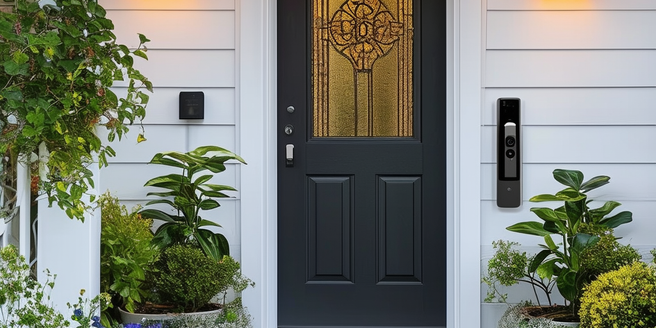
Secure Entry Points: Doors and Windows
Ensuring all entry points like doors and windows are secure is crucial for the safety of your home or business. Use deadbolt locks on all doors as they provide a higher level of security compared to regular locks. Reinforcing window locks is equally important to prevent unauthorized access. Adding security cameras near entry points can serve as both a deterrent and a means to gather evidence in case of an attempted break-in. It is also important to regularly check all locks and hinges to ensure they are functioning correctly.
In addition to locks and technology, lighting plays a key role in security. Keeping entry points well-lit can discourage intruders who prefer to operate under the cover of darkness. Motion-activated lights are particularly useful as they only turn on when movement is detected, conserving energy while still providing effective illumination. By taking these steps, you can significantly improve the security of your property and provide peace of mind.
Fire Safety Measures Every Home Should Have
Every home must be equipped with essential fire safety measures. Install smoke detectors in key areas such as the kitchen, bedrooms, and hallways. Regularly test and replace batteries in these detectors. Additionally, ensure that everyone in the household knows how to operate these devices. Have a fire extinguisher accessible, especially in the kitchen. Consider installing a fire alarm system for added protection. It could also be beneficial to have carbon monoxide detectors installed. Create a fire escape plan and practice it with all household members. Make sure windows and doors are easy to open in case of emergency. Ensure that electrical wiring is up to code and avoid overloading outlets. Keep flammable items away from heat sources.
Importance of Regular Electrical Inspections
Regular electrical inspections are vital for home safety. Faulty wiring and outdated electrical systems can pose serious fire hazards. Hire a licensed electrician to inspect your home’s electrical setup at least once a year. Regular maintenance can prevent potential electrical failures. In addition to yearly inspections, consider getting an assessment if you’ve recently moved into a new home. This not only ensures safety but can also help you save on energy bills. Look for warning signs like flickering lights or frequently tripped circuit breakers. Keeping an eye on these signs can help you identify issues early. Make sure outlets and switches are in good working condition. Never attempt DIY electrical repairs without proper knowledge and tools as it can lead to accidents.
Childproofing Your Home: Essential Steps
Childproofing your home is essential to keep young children safe. Install safety gates at the top and bottom of stairs to prevent falls. Use outlet covers to protect children from electrical shocks. Store hazardous substances like cleaning products and medications out of reach. Make sure to educate older children about the dangers that can lurk in everyday objects. Remember to keep windows locked and use safety latches where necessary. It is also important to regularly check for any potential hazards that could have been missed initially. Secure heavy furniture and appliances to the wall to avoid tip-overs. Keep small objects that can be choking hazards out of children’s reach, and use corner protectors on sharp furniture edges.
Preventing Slips and Falls in High-Risk Areas
Preventing slips and falls in high-risk areas can save you from injuries. Install non-slip mats in bathrooms and around pools. Ensure stair treads are secure and have handrails on both sides. Always be mindful of potential hazards and address them proactively. Regular maintenance of these areas is crucial to enhancing safety. Keep walkways and hallways clear of clutter. Make sure rugs have non-slip backing and repair any loose floorboards. Improve lighting in all areas, especially staircases, to ensure visibility. Never underestimate the importance of proper footwear with good grip. Avoid waxing floors that can become slippery, and clean up spills immediately to prevent accidents. Education on safety measures can also make a significant difference.
